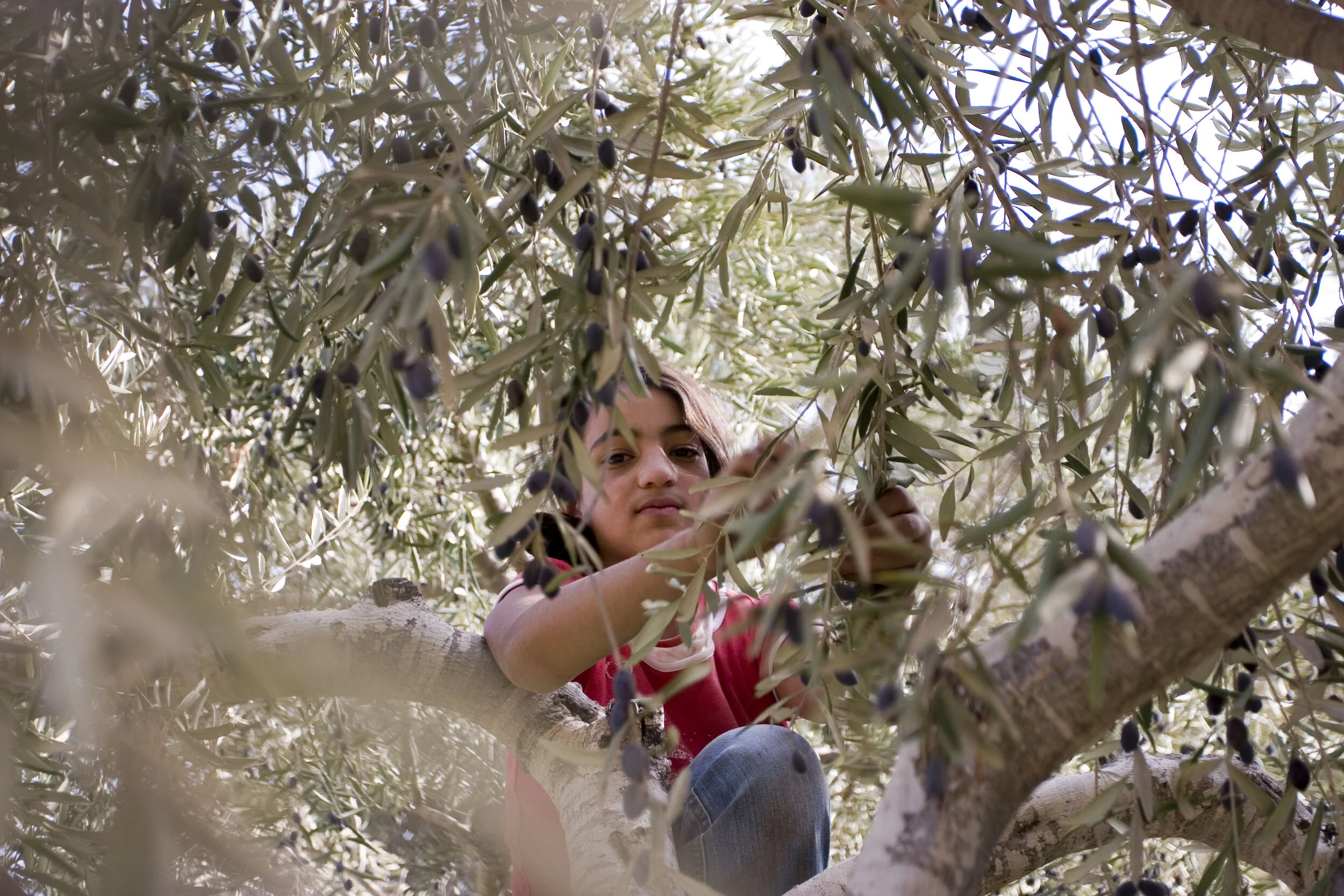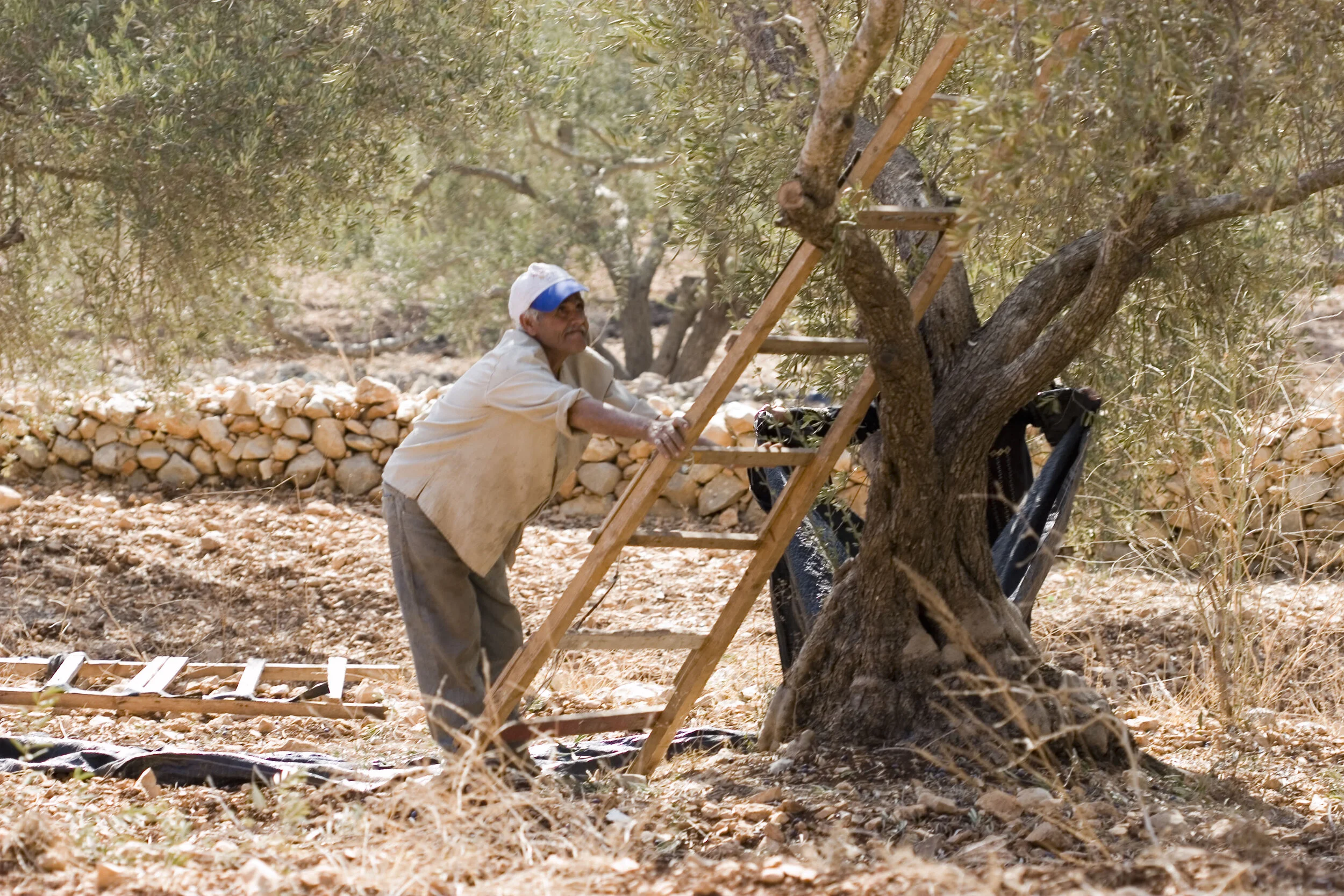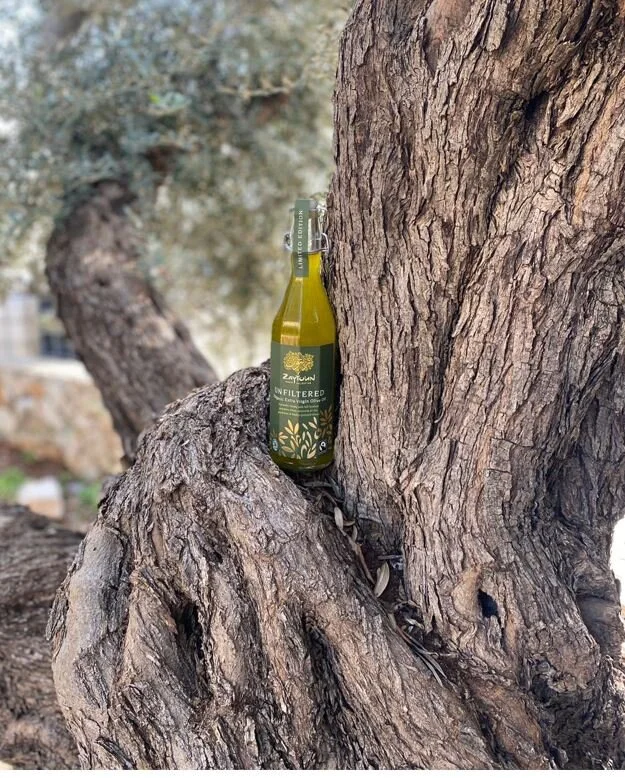An ancient symbol of home: Harvesting olives in Palestine
October 2021
The olive tree is a universal symbol of peace. It is also a powerful symbol of Palestinian rootedness in their land. Olive trees have been a major source of income for Palestinians for centuries. But in the political turmoil of the Middle East today, trees that have survived hundreds of years have become casualties in the struggle for control of the land. Here, Zaytoun, a Palestinian supplier of fine foods and Olive oil, explains just what the olive harvest means to the Palestinian people.
October brings the olive harvest season in Palestine. Olives are gathered for olive oil and also for pickles and silky handmade soap. Beyond that, olives are the fruit of an ancient symbol of Palestine: the trees are rooted to the land and famously resilient – many are thousands of years old.
In villages nestled among ancient terraced hills all over the West Bank, families rise early with a cup of strong sweet Arabic coffee and a simple breakfast. As dawn breaks across the wide skies, people emerge from houses and set off, aiming for their family groves. Here whole extended families will pick olives for most of the day, starting in the cool early morning hours. Grandparents, parents and children gather under the trees, setting ladders against the tallest of them, laying mats out around their roots.
Soon the air in the groves fills with the rich scent of olives and the sound of olives falling like fat raindrops onto the mats, where they are sorted and bagged. The harvesting is done by hand, and trees are pruned as they are harvested.
For some, this may be the only chance they get to visit their groves in safety. If their trees are situated next to a fence that surrounds one of the illegal Israeli settlements, or by an Israeli road from which they are barred, visiting the land is potentially dangerous. Attacks from armed settlers, or a military ‘closed zone’ may be declared at any moment. The harvest is a flashpoint – families who have been harvesting all day, gathering sackloads of fruit, may be forced to abandon their land along with their hard-won harvest at any point if settlers arrive.
Yet still, the harvest is a joyful occasion. Family members working in the cities of the West Bank take time off work to join relatives in the groves. The trees are passed from generation to generation. Stone terrace walls preserve the soil and conserve water, important in the increasingly long periods of hot dry weather. With 45% of Palestinian agricultural land planted with an estimated 10 million olive trees, the annual harvest is an important occasion for every family. Haj Rafeeq Hussein, a farmer from Ti’innik village in north-west Palestine, told us ‘I love to look after those trees. I have a passion for them, and if I could, I would sleep under the olive trees. I feel a deep connection to the land and the trees.’
Lunch at harvest time is a feast of traditional Palestinian food eaten under the generous shade of the trees – home-made flatbreads, hummus, labneh, salad, and sometimes even the iconic dish maqloubeh – layered meat, rice and vegetables all spiced with the signature baharat, which includes cinnamon, cardamom, cloves and nutmeg. Hot sweet mint tea, surprisingly refreshing even in the afternoon heat, is brewed on aromatic olive twig fires.
Once the ripe olives are bagged, farmers take the precious load straight to the local press. Here, while the fruit is processed, local stories are shared along with tea and coffee. From the press, the oil is distributed – some for domestic use, some for export. Farmers and visitors gather in side rooms dipping freshly baked ‘tabun’ bread into bowls filled with the delicious peppery oil, unfiltered and straight from the press,
Alongside the cultural significance of tending to trees and land that have been passed down through countless generations, there is an economic aspect; up to 100,000 families depend upon the olive harvest for their livelihoods to some extent. With travel restricted and an economy that’s stunted by the Israeli occupation, land-based livelihoods are key to the resilience of Palestinian communities.
We love to bring our customers to meet the farmers, cooks and communities who create the food we love. We invite you to join us on one of our tours in Palestine, as soon as we can safely relaunch them. Read more on our Visit Palestine page.
This blog was written for us by Zaytoun - shop their products here.
You can help to protect Palestinian land by sponsoring an olive tree with Embrace’s Olive Tree Project.





